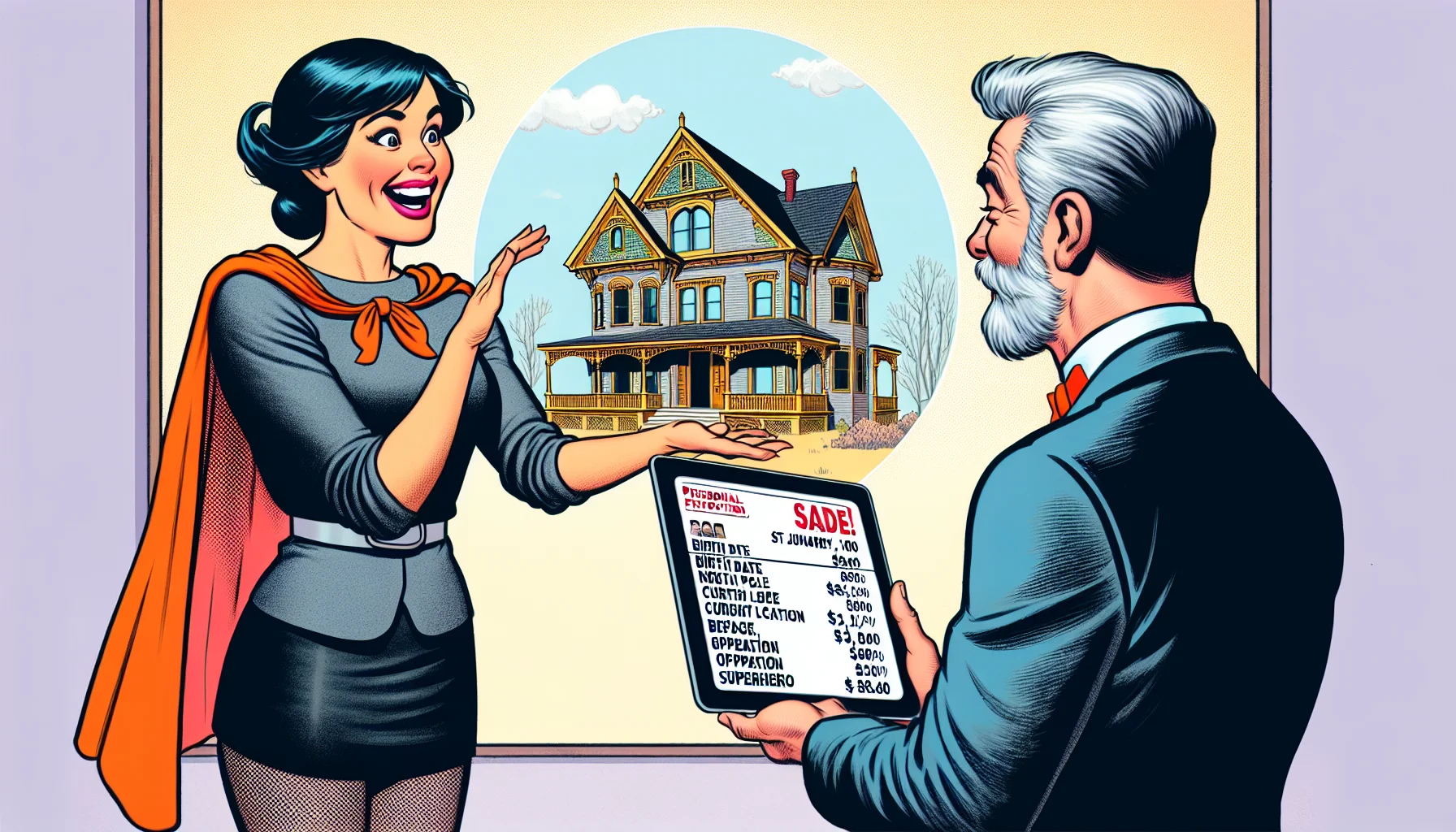Dpa advantage Quiz
Test Your Knowledge
Question of
Understanding DPA in Real Estate
Definition of Down Payment Assistance (DPA)
Down Payment Assistance, commonly known as DPA, is a game-changer for aspiring homeowners. It's a form of financial aid provided to homebuyers to cover the initial costs of purchasing a property. Think of DPA as a stepping stone that propels potential buyers closer to their dream homes by alleviating the burden of hefty upfront payments.
DPA isn't a one-size-fits-all solution; it's tailored to fit various income levels and needs. It's designed with the buyer in mind, ensuring that homeownership becomes attainable and less intimidating. This assistance can come from multiple sources, including government entities, non-profit organizations, or even private sector institutions aiming to foster community development.
How DPA Programs Work
DPA programs are like secret weapons for homebuyers who might otherwise be sidelined in the real estate market. They work by providing funds, which can be used towards down payments or closing costs, making the purchase process smoother and more accessible. Eligibility for these programs often depends on factors such as income level, credit score, and first-time homebuyer status.
The impact of DPA programs is undeniable they open doors! By reducing the initial financial barrier, these programs empower individuals to invest in their futures through property ownership. They're not just about getting keys in hands; they're about building communities and fostering long-term financial stability for families.
The Role of DPA in Homeownership
DPA plays a pivotal role in homeownership by leveling the playing field. It offers a lifeline to those who have been systematically marginalized from the housing market. By providing necessary funds, it breaks down barriers and paves the way for diverse communities to grow through homeownership.
This assistance also has a ripple effect on local economies when people buy homes, they invest in their neighborhoods. Homeownership through DPA can lead to increased community engagement and stability. It's not just an investment in brick and mortar; it's an investment in people's lives and futures.
Types of DPA Programs
DPA programs are not monolithic; they come in various shapes and sizes to fit different needs. From grants that don't need repayment if certain conditions are met, to low-interest loans that make financial sense there's something out there for every aspiring homeowner.
Understanding the different types of DPA programs available is crucial for making informed decisions when stepping into the real estate market. Let's dive into some common types: grants and forgivable loans, plus deferred payment loans.
Grants and Forgivable Loans
Grants are like gifts that keep on giving they don't require repayment if you stick around long enough! Many grant programs require recipients to live in their new home for a set number of years before the grant is fully forgiven. Forgivable loans operate similarly; they're phased out over time as long as you meet certain conditions.
- Stay Put: Stick around! Most grants require you to stay in your home for several years to avoid repayment.
- No Moonlighting: Your new home should be your primary residence; no renting it out!
- Fulfill Program Requirements: Attend required workshops or counseling sessions as stipulated by your grant program.
- Maintenance Matters: Keep your property in good shape; neglect could mean repayment.
- Paperwork is Key: Complete all necessary documentation thoroughly and accurately to avoid hiccups.
- Talk Taxes: Be aware of any tax implications associated with your grant or forgivable loan.
Deferred Payment Loans
Deferred payment loans are perfect for those who need breathing room. These loans delay repayment until you sell, refinance or pay off your primary mortgage offering peace of mind during early homeownership years when finances can be tightest.
The allure of deferred payment loans lies in their flexibility. They understand life's unpredictability and offer a safety net until you're more financially secure. With such strategic support available, climbing the property ladder seems less daunting and much more achievable!
Eligibility Criteria for DPA Programs
Income and Credit Score Requirements
Understanding the income and credit score requirements is crucial when applying for Down Payment Assistance (DPA) programs. These programs are designed to help first-time homebuyers or those who haven't owned a home in the last three years. Applicants must meet specific income guidelines, which often vary depending on the median income of the area where they wish to purchase a home.
The minimum income thresholds ensure that DPA programs truly assist those in need, bridging the gap for low to moderate-income families. Your annual earnings must fall within certain limits set by the program, which are typically a percentage of the area's median income. This guarantees fairness and targets assistance effectively.
Minimum Income Thresholds
DPA programs frequently establish minimum income thresholds to qualify. These thresholds are based on a percentage of the area's median income and adjusted for family size. They are designed to prioritize applicants who have enough stable income to afford mortgage payments after assistance but still need help with upfront costs.
Credit Score Impact on Eligibility
Your credit score plays a pivotal role in determining eligibility for DPA programs. A higher credit score can not only increase your chances of qualifying but may also secure better terms for your mortgage loan. Typically, a credit score of 620 or above is viewed favorably by most DPA programs, although some may have more flexible requirements.
Property Eligibility and Restrictions
DPA programs often come with specific property eligibility criteria and restrictions to ensure that the assistance provided is used responsibly and benefits those it's intended for. These criteria can include location, type of property, and how you intend to use it. Its important to understand these restrictions before you begin house hunting.
Targeted Real Estate Areas
Many DPA programs target specific real estate areas, aiming to promote homeownership in underserved communities or regions undergoing revitalization. Purchasing a property in these targeted areas might not only make you eligible for assistance but could also contribute to broader community development efforts.
Property Type and Usage
- Primary Residence: Almost all DPA programs require the purchased property to be your primary residence. Investment properties are typically not eligible.
- Type of Property: Eligible property types can include single-family homes, condominiums, and sometimes even multifamily properties if one unit will be owner-occupied.
- New Construction vs Resale: Some DPAs may allow for both new construction and resale homes, while others may restrict eligibility to one or the other.
- Maintenance Standards: The property may need to meet certain maintenance standards or pass inspections before qualifying for assistance.
- Limited Equity Co-ops: A few programs might extend eligibility to limited equity cooperatives where you own shares rather than real estate directly.
The Application Process for DPA
Gathering Necessary Documentation
When you're diving into the world of Down Payment Assistance (DPA), the first thing you need to do is collect your financial documents. This is a critical step! Lenders and assistance programs want to see proof of your financial stability. Gather your recent pay stubs, tax returns from the past two years, and bank statements. These documents paint a clear picture of your income and savings.
Next up, let's talk employment verification! It's not just about what you earn; it's also about job security. Be ready to provide contact information for your employer because some programs will directly verify your employment status. This step is key in showing that you have a reliable source of income to support mortgage payments after the purchase.
Proof of Income and Employment
Alright, lets get into the nitty-gritty of income and employment verification. The aim here is to convince the DPA providers that you've got a steady flow of cash. For salaried employees, this means W-2 forms are your best friends. If you're self-employed, get those 1099s or profit and loss statements ready. Your lender wants to ensure your income can comfortably cover your new mortgage payments along with existing debts.
Remember, consistency is key! Lenders love seeing consistent employment history. If you've been hopping between jobs or have gaps in your employment, be prepared to explain. Write a brief letter detailing any anomalies in your work history to accompany your application. This proactive step can make all the difference!
Legal and Property Documents
Moving on to legal and property documents these are crucial in proving ownership and legal standing. You'll need a copy of your driver's license or state ID to confirm your identity. Also, get ready with copies of any real estate deeds if you currently own property, as well as documentation on outstanding loans or obligations tied to them.
Apart from personal identification, legal docs related to the property you're eyeing are also important. Get hold of the property listing details, proof of sale (like a signed offer letter), and any disclosures provided by the seller. These documents will be closely scrutinized during the DPA application process so make sure they are accurate and up-to-date!
Steps to Apply for DPA Programs
First things first locate those DPA providers! Do some detective work online or reach out to local housing agencies. They often have information about available programs in your area. Once you've got a list of potential DPAs, give them a call or check out their websites for more details on their application process.
- Contact multiple providers: Don't put all your eggs in one basketexplore different options.
- Review eligibility criteria: Make sure you meet all the requirements before applying.
- Understand terms and conditions: Know what's expected of you in terms of repayment or program participation.
- Gather all necessary documentation: Have everything ready before starting the application.
- Fulfill education requirements: Some programs require homebuyer education coursessign up early!
- Keep track of deadlines: Missing an application deadline could mean missing out on assistance.
- Follow up after submission: Stay proactive and check on the status of your application periodically.
Last but not least submitting that application! This is where attention to detail pays off big time. Fill out every section meticulously; incomplete applications can be grounds for immediate disqualification. Double-check that all required documents are attached before sending it off into the world. And remember, deadlines are not suggestions; they're firm dates by which your application must be received!
Advantages of Using DPA for Homebuyers
Reducing Initial Financial Burden
Down Payment Assistance (DPA) programs can be a lifeline for aspiring homeowners. They significantly reduce the upfront costs associated with purchasing a home, often making the difference between renting and owning. By covering a portion or all of the down payment, DPA programs alleviate one of the biggest financial hurdles for buyers.
DPA programs can also come with additional benefits such as lower interest rates or tax credits, further easing initial financial stress. This assistance is particularly beneficial for first-time homebuyers who may not have substantial savings or equity from previous property ownership.
Lowering Out-of-Pocket Costs
By leveraging DPA, homebuyers can preserve their hard-earned money for other key aspects of the home-buying process. This includes closing costs, moving expenses, and immediate home repairs or upgrades that are often necessary when transitioning into a new residence. Minimizing out-of-pocket expenses ensures a smoother financial transition into homeownership.
Furthermore, DPA can help to avoid the need for Private Mortgage Insurance (PMI), which lenders typically require when down payments are below 20%. Avoiding PMI can save homeowners significant amounts over the life of their mortgage loan.
Preserving Savings for Other Expenses
DPA enables buyers to retain their savings for unforeseen expenses or emergencies that may arise after purchasing a home. It's crucial to have a financial cushion for maintenance issues or personal emergencies without depleting all resources on the down payment.
This strategic financial planning helps maintain long-term stability and peace of mind for homeowners, ensuring they're prepared for both expected and unexpected future costs associated with home maintenance and personal finances.
Improving Home Affordability
DPA programs expand housing options by increasing the affordability range for potential buyers. They open up possibilities to consider homes in more desirable neighborhoods or homes with features that might have been out of reach without assistance.
- Expand Your Search: Look beyond your initial preferences to find hidden gems that qualify for DPA.
- Understand Eligibility: Research various DPA programs to determine which ones you qualify for based on your income, location, and first-time homebuyer status.
- Create a Budget: Factor in DPA when calculating your budget to accurately assess what you can afford.
- Prioritize Features: Decide what home features are most important to you within your new budget constraints.
- Maintain Flexibility: Be open to adjusting your expectations based on what's available within your price range after applying DPA benefits.
Expanding Budget for Home Selection
The financial leeway provided by DPAs allows buyers to explore a broader market segment. This flexibility can lead to better investment decisions as buyers are not restricted by stringent budget limitations and can choose homes that offer better value retention over time.
This advantage is crucial in competitive housing markets where higher bids may be necessary to secure a desired property. With DPA funds supplementing their budget, buyers stand a better chance in bidding wars without compromising their financial stability.
Accessing Better Loan Terms
DPA recipients may find themselves eligible for more favorable loan terms due to the larger down payment made possible through these programs. Lenders view these borrowers as lower risk, potentially leading to reduced interest rates and more attractive mortgage packages.
In addition, some DPAs are structured as forgivable loans that do not require repayment if certain conditions are met over time, such as residing in the home as a primary residence for a set number of years. This feature provides additional long-term financial benefits beyond the initial purchase phase.
Long-Term Financial Considerations
Impact on Mortgage Payments
The use of Down Payment Assistance (DPA) can have a significant impact on your mortgage payments. By reducing the initial out-of-pocket expense, DPA programs can make homeownership more accessible, but it's crucial to understand the long-term effects on your monthly budget.
Calculating Monthly Costs with DPA requires careful consideration. While DPA can lower your loan amount, it may come with additional fees or higher interest rates. It's imperative to calculate the adjusted monthly payments and compare them with traditional mortgage options to gauge the true cost.
Interest Rates and DPA Influence go hand in hand. Sometimes, accepting DPA means agreeing to a slightly higher interest rate, which over time can increase the overall cost of your loan. Always scrutinize the terms and consult with a financial advisor to ensure you're making an informed decision.
Equity Building and DPA
Building equity is one of the most exhilarating aspects of homeownership! Equity increases as you pay down your mortgage and as your home appreciates in value. However, how DPA affects this process is a question that demands attention.
Home Value Appreciation Over Time can significantly benefit your financial health. As markets rise, so does the potential value of your property. This growth can be more pronounced if you've entered the market through DPA programs, as the initial investment was lower.
Repayment Terms of DPA Funds often come with strings attached. Some require repayment upon sale or refinancing, while others may be forgiven over time. Understanding these terms is crucial for assessing how they'll affect your equity growth and financial future.
- Analyze Different DPA Programs: Research various options to find a program that aligns with your financial goals.
- Maintain Good Credit: A strong credit score can secure better loan terms, even when using DPA.
- Consider Long-Term Costs: Look beyond initial savings and calculate total payment over the life of the loan.
- Stay Informed About Market Trends: Understanding real estate trends helps you predict home value changes.
- Plan for Repayment Scenarios: Be prepared for different outcomes regarding repaying the DPA funds.
Common Misconceptions About DPA
Myths Surrounding DPA Eligibility
There's a widespread myth that Down Payment Assistance (DPA) programs are only for first-time homebuyers with incomes below a certain level. However, many programs offer aid to repeat buyers or those with moderate incomes. It's crucial to research specific program requirements as they can vary greatly.
Another common misconception is that DPA is exclusively available to certain professions, like teachers or military personnel. While some programs do target specific groups, there is a multitude of DPAs open to a broader audience. Potential homebuyers should explore all options within their state or municipality.
Misbelief About Income Limits
The belief that income limits for DPA are set at unattainably low levels is simply untrue. Many programs have adjusted their thresholds to accommodate a range of income brackets. This ensures more individuals and families can access these vital funds for homeownership.
It's important not to assume ineligibility based on income without checking current guidelines. Programs often update their criteria to reflect changes in the economy and median area incomes.
Confusion Over Credit Requirements
Credit score requirements for DPA can be a source of confusion, leading some to think they won't qualify. While creditworthiness is a factor, many programs have realistic thresholds and offer flexibility. Some even provide educational resources to help applicants improve their credit scores.
Potential applicants should consult with DPA providers directly for accurate information on credit criteria and available assistance in navigating credit challenges.
Clarifying Repayment Expectations
The repayment terms of DPA loans often deter potential homebuyers due to misconceptions about heavy financial burdens. However, the reality is that many DPAs offer favorable repayment conditions tailored to assist rather than strain the homeowner.
In many cases, the terms include no interest or monthly payments, reducing the immediate financial impact on new homeowners and allowing them to stabilize their finances post-home purchase.
Understanding Forgivable Loans
Forgivable loans are a type of DPA that may be completely waived after the homeowner meets certain conditions, such as residing in the property for a predetermined period. Misunderstandings about these terms can lead individuals to overlook these advantageous opportunities.
- Duration: The forgiveness period typically spans several years and requires continuous occupancy as the primary residence.
- No Payment: During this period, homeowners usually enjoy the benefit of not having to make any payments towards the loan.
- Pro-Rata Forgiveness: Some programs forgive portions of the loan incrementally over time, reducing the balance gradually as long as the homeowner remains in compliance.
- Fairness in Resale: If selling before the term ends, provisions often ensure fairness so homeowners can still benefit from resale without undue penalty.
Terms of Deferred Payment Options
DPA programs with deferred payment options allow homeowners to delay repaying the down payment loan until certain events occur, such as refinancing or selling the property. This flexibility supports long-term homeownership sustainability by preventing financial strain during crucial early years.
To fully benefit from deferred payment DPAs, it's essential for borrowers to understand all conditions tied to repayment triggers. Knowledge about these terms ensures informed decisions when considering refinancing or moving out.
Role of Real Estate Professionals in DPA
Real Estate Agents and DPA Guidance
Real estate agents are pivotal in informing buyers about Down Payment Assistance (DPA) programs. They serve as an initial point of contact, often identifying programs that match the buyer's needs. With their in-depth knowledge of local real estate markets, agents can suggest suitable DPA options that complement a buyers financial situation.
The role of real estate agents extends beyond mere suggestions; they actively advocate for their clients' best interests. By providing comprehensive information on various DPA programs, agents ensure that buyers are well-equipped to make informed decisions. This support is crucial, especially for first-time homebuyers who may be unaware of the financial assistance available to them.
Educating Buyers on DPA Benefits
Education on the benefits of DPA is a cornerstone of a real estate agent's responsibilities. They highlight how DPAs can reduce upfront costs, potentially saving buyers thousands of dollars. Additionally, agents explain how these programs can improve affordability by lowering monthly mortgage payments.
Real estate professionals also emphasize the long-term advantages of DPAs, such as building equity faster and creating opportunities for wealth accumulation through homeownership. By demystifying the complexities of DPAs, agents empower buyers with the confidence to pursue homeownership.
Navigating the DPA Application Process
Navigating the application process for DPAs can be daunting, but real estate agents provide invaluable assistance. They guide buyers through each step, ensuring all eligibility requirements are met and documentation is complete. Their guidance helps streamline the application process, reducing delays and increasing the likelihood of approval.
Agents collaborate closely with other professionals involved in the transaction to coordinate efforts and information exchange. This collaborative approach ensures that buyers have a smooth experience when applying for DPAs and that no critical steps are overlooked.
Lenders' Perspective on DPA Programs
Lenders view DPAs as tools that enable borrowers to secure financing who might otherwise fall short of down payment requirements. These programs help lenders expand their customer base by qualifying more applicants for loans. Moreover, DPAs often come with certain contingencies that protect lenders, making these arrangements financially viable.
Lenders also recognize the potential for increased market stability provided by DPAs. By facilitating homeownership for a broader segment of the population, these programs contribute to a more robust and diverse housing market.
Assessing Loan-to-Value Ratios with DPA
When integrating DPAs into loan products, lenders meticulously assess loan-to-value (LTV) ratios. A lower LTV ratio resulting from a higher down payment can lead to more favorable loan terms for borrowers. This can include reduced interest rates or waived mortgage insurance premiums.
Lenders use DPAs to strategically structure loans that align with both regulatory guidelines and risk management objectives. They carefully evaluate each borrower's financial profile to ensure that even with DPA funds, borrowers will maintain manageable debt levels post-purchase.
Integrating DPA into Loan Products
The integration of DPAs into loan products requires thoughtful design by lenders to ensure compliance with lending standards while offering competitive advantages. Innovative loan products that incorporate DPAs can attract a wider range of borrowers who might otherwise be excluded from homeownership due to financial constraints.
Lenders frequently collaborate with government agencies and non-profit organizations to create synergies that benefit all parties involvedespecially the homebuyer. Such collaborations often result in tailored loan products that meet specific community needs or address housing market imbalances.
- Understand Eligibility: Ensure you meet all criteria before applying.
- Gather Documentation: Have all necessary financial documents ready.
- Meet Deadlines: Submit applications and required paperwork on time.
- Stay Informed: Keep up-to-date with changes in program details or requirements.
- Ask Questions: Dont hesitate to seek clarification on any aspect of the program.
- Consider Long-Term Impact: Understand how accepting assistance affects your finances over time.
- Avoid Assumptions: Each program has unique features; don't assume one size fits all.
- Maintain Communication: Regularly check in with your real estate agent or lender for any updates.
- Evaluate Multiple Options: Explore different programs to find the best fit for your situation.
- Prioritize Approval Chances: Focus on programs where you have the highest likelihood of being approved.
Future of DPA in the Real Estate Market
Trends in Down Payment Assistance Programs
Down Payment Assistance (DPA) programs are evolving, with a surge in demand as housing prices soar. These programs are crucial for buyers struggling to save for a down payment. They're not just for low-income individuals anymore; middle-class buyers are increasingly taking advantage of DPAs.
Innovation is key in DPA trends. Lenders and non-profits are collaborating more than ever, creating flexible and creative financing solutions. The goal is to make homeownership attainable for a broader demographic, thereby fostering inclusive community growth.
Government Policy Changes Impacting DPA
Government policy is a powerful driver for DPA programs. Recent legislative proposals aim to expand access to housing funds, especially for underserved communities. These changes could unlock new opportunities for potential homeowners.
The government's focus on affordable housing has led to an increase in federal backing for DPAs. This support encourages local governments and private entities to develop more robust assistance programs, which could significantly impact the real estate market dynamics.
Innovations in Funding and Accessibility
Technology is revolutionizing DPA funding and accessibility. Online platforms now enable faster, more transparent transactions between buyers and assistance programs. These platforms also offer educational resources, helping buyers navigate the complexities of homeownership.
Funding innovations such as shared equity models provide alternatives to traditional loans. By investing in a portion of the property's equity, these models give buyers lower payments while investors gain from property appreciation, creating a win-win scenario.
Predictions for Homeownership Rates
Homeownership rates are expected to shift due to evolving DPAs. Analysts predict that improved program awareness and accessibility will lead to a noticeable uptick in homeownership among previously marginalized groups.
- Analyze historical data to forecast trends accurately.
- Consider demographic shifts and their impact on market needs.
- Watch policy changes that can influence buyer capabilities.
- Stay updated on financial product innovations that broaden affordability.
- Monitor the scalability of successful DPA programs for wider implementation.
The Potential Growth of First-Time Buyers
The future looks promising for first-time buyers, who stand to benefit greatly from expanded DPA initiatives. With targeted support, these buyers could reshape the housing market, driving demand in new regions and property types.
Economic indicators suggest that the rise in first-time homeowners will continue as long as DPAs remain accessible and innovative funding solutions keep emerging. This trend is essential for sustaining a healthy real estate ecosystem that fosters equal opportunity ownership.












